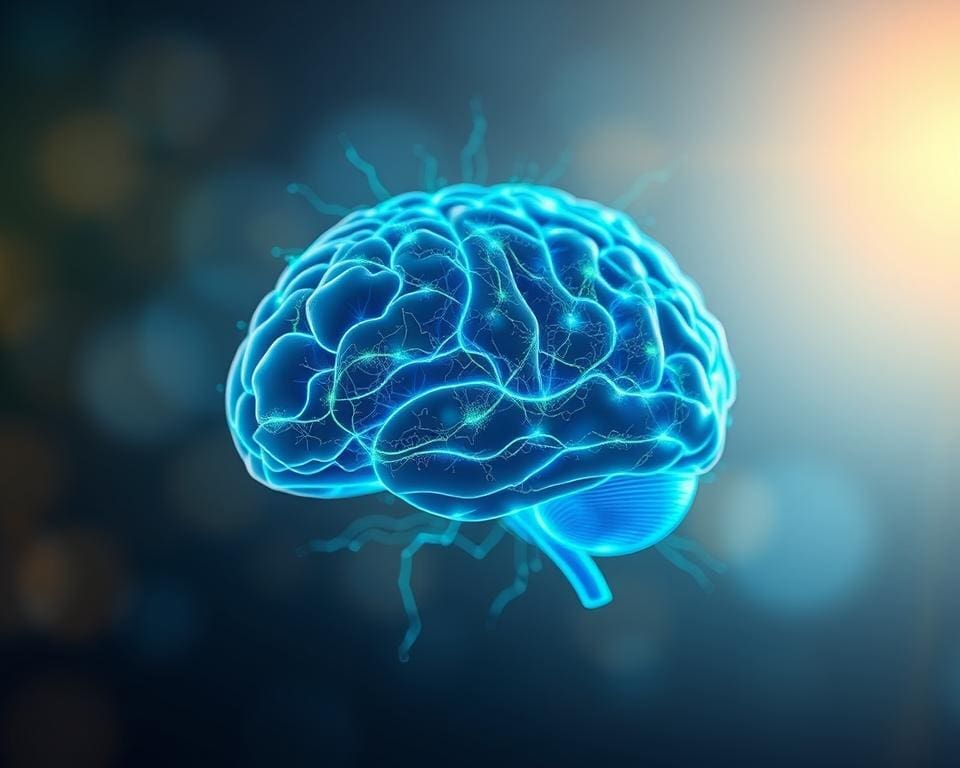In a fast-paced world where mental sharpness often feels elusive, the importance of daily movement cannot be overstated. Engaging in consistent physical activity is a transformative practice that not only elevates mental clarity but also enriches overall wellbeing. Studies show that regular movement stimulates cognitive functions, reduces stress levels, and reinforces emotional resilience. By recognising the profound impact of daily physical activity, individuals can cultivate environments conducive to better mental health, allowing them to navigate life’s challenges with enhanced focus and composure.
The science behind daily movement and mental clarity
Understanding the intricate relationship between physical activity and brain health reveals profound insights into mental clarity and cognitive function. Engaging in regular movement activates various neural pathways, enhancing both mood and clarity. When the body participates in physical activity, the brain responds by releasing essential neurotransmitters crucial for optimal performance.
Understanding the brain’s response to physical activity
When individuals partake in exercise, the brain experiences notable changes. The release of neurotransmitters like dopamine and serotonin plays a significant role in mood regulation. Scientific studies demonstrate that even moderate levels of exercise can lead to heightened cognitive performance and improved memory. Enhanced neuroplasticity occurs as physical activity strengthens the brain’s ability to adapt and grow, resulting in more significant overall cognitive function.
The role of endorphins in enhancing mental wellbeing
Endorphins, often known as the body’s natural ‘feel-good hormones’, are pivotal in promoting emotional wellbeing. During physical activity, the body generates endorphins, which contribute to a more positive outlook and reduced feelings of stress. These biochemical reactions not only alleviate discomfort but also foster a sense of wellbeing that is essential for maintaining mental clarity. Emphasising the physical activity benefits, consistent movement creates a balanced environment for brain function and emotional health.

The power of daily movement for mental clarity
Engaging in daily exercise manifests remarkable clarity benefits, enhancing mental focus and emotional wellbeing. Research consistently demonstrates that physical activity serves as a catalyst for energising the mind. Individuals who incorporate movement into their daily routines often experience heightened concentration, enabling them to tackle problems with newfound creativity.
Developing a consistent exercise routine not only aids in physical health but acts as a powerful tool for achieving mental clarity. Each session reinforces the brain’s resilience, fostering an environment where distractions diminish and productivity flourishes. This process cultivates a stable mindset, allowing for more effective decision-making, whether at work or home.
As participants notice the clarity benefits of regular movement, they frequently report increased positivity and motivation. This aligns with the understanding that emotional wellbeing is deeply interconnected with physical activity. Embracing movement is not merely a matter of fitness; it elevates one’s overall approach to life’s challenges and opportunities.
Incorporating movement into your daily routine
Integrating movement into a daily routine can feel challenging, especially for those leading a busy lifestyle. Simple exercises that fit seamlessly into your day can make a significant difference in both physical and mental wellbeing. By prioritising these movements, you can enhance your mental clarity without sacrificing valuable time.
Simple exercises to fit into a busy schedule
For individuals juggling multiple responsibilities, the following simple exercises can easily be woven into the fabric of your day:
- Desk stretches: A few quick stretches at your desk can alleviate tension and improve your focus.
- Short bursts of walking: Take five minutes to walk around the office or your home every hour.
- Using stairs instead of lifts: This small change can invigorate your day and promote cardiovascular health.
Mindful walking: A bridge between movement and mindfulness
Mindful walking serves as an excellent way to combine movement and mindfulness. While walking, shift your focus to the rhythm of your steps and your breath, allowing your thoughts to settle. This practice promotes not only physical activity but also reduces anxiety and enhances concentration. Taking time for mindful walking provides an oasis of clarity amidst the chaos of a busy lifestyle.
Types of daily movement and their benefits
Daily movement encompasses various activities, each offering distinct advantages for both physical and mental health. Among these, cardiovascular exercises and strength training stand out for their unique contributions to enhancing our overall wellbeing.
Cardiovascular exercises: Quick energy boosters
Engaging in cardiovascular exercises like running, cycling, or dancing can lead to immediate energy boosts. These activities promote the release of endorphins, often referred to as the body’s natural mood lifters. Regular participation in such exercises not only uplifts spirits but also sharpens cognitive function, allowing individuals to feel invigorated and mentally clear.
Strength training for mental resilience
While strength training is traditionally viewed through a physical health lens, its benefits extend well beyond muscle building. Regular strength training fosters mental resilience, helping individuals develop a more robust psychological outlook. This form of exercise equips one with tools to cope better with stress and enhances self-esteem, effectively reinforcing mental fortitude while contributing to overall fitness.
The impact of outdoor movement on mental clarity
Engaging in outdoor activities profoundly influences our mental clarity. Nature connection plays a vital role in how we feel and think. Studies indicate that spending time outdoors diminishes stress levels and boosts happiness, allowing individuals to cultivate a sharper focus.
Connecting with nature for enhanced focus
Exercising in natural settings fosters a deeper connection with the environment. Activities such as hiking, cycling, or simply walking in a park allow us to experience the serenity of nature. These interactions can enhance our ability to concentrate, as the tranquillity of the surroundings clears mental clutter. When we immerse ourselves in nature, our minds can reset, leading to improved cognitive function.
The benefits of fresh air and natural light
Fresh air and natural light are crucial elements for maintaining a healthy mindset. These elements contribute to optimal serotonin levels, essential for mood regulation. Enjoying outdoor activities exposes us to sunlight, which enhances our energy levels and overall well-being. Breathing in the crisp air during a jog or a leisurely stroll optimises brain function, allowing for greater mental clarity and focus.
Creating a personalised movement plan
Crafting a personalised movement plan begins with a thorough understanding of your current lifestyle and fitness aspirations. A comprehensive lifestyle assessment will highlight your present activity levels, barriers, and motivations. This self-reflection lays the groundwork for setting personalised and achievable goals that resonate with your desire for mental clarity.
Assessing your current lifestyle and goals
A detailed lifestyle assessment involves examining your daily routines, including work commitments, social activities, and existing fitness practices. Reflecting on these aspects helps identify patterns and preferences. Consider listing your current exercise habits, energy levels throughout the day, and moments when you feel most active. This reflection ensures that the changes you plan to implement are tailored to your unique lifestyle and support your mental clarity.
Setting achievable movement targets for clarity
Once you have a clear understanding of your lifestyle, focus on setting achievable goals that align with your aspirations. Utilising the SMART framework can guide you to create specific, measurable, and time-bound targets. For instance, instead of a vague aim of “getting fit,” you might set a goal to walk for 30 minutes, five times a week. This tailored approach not only motivates sustained engagement but helps ensure that daily movement becomes a meaningful part of your routine.
Success stories: Real-life benefits of daily movement
The impact of daily movement on mental clarity is powerfully illustrated by numerous real-life success stories. Individuals from all walks of life have embraced physical activity, witnessing incredible transformation stories that show how consistent movement can enhance mental wellbeing. From improved focus to an elevation in mood, these narratives highlight the profound movement benefits experienced by many.
Inspirational tales of transformation
Many people have shared their inspiring journeys of transformation. For instance, one individual turned to yoga and found a calming effect on their racing thoughts. Over time, this practice significantly improved their ability to concentrate and manage stress. Others have found strength in running, experiencing not only physical changes but also increased confidence and clarity.
Expert insights on movement and mental health
Mental health professionals consistently emphasise the direct correlation between daily movement and enhanced mental clarity. According to expert insights, even short bursts of physical activity can release endorphins, contributing to better emotional health. Such findings reinforce the importance of incorporating regular movement into daily routines, ultimately leading to long-lasting improvement in mental wellbeing.
Overcoming barriers to daily movement
In the journey to enhance mental clarity through daily movement, many individuals encounter various barriers to exercise that can hinder their progress. Common challenges often include time constraints, lack of motivation, and physical limitations. Recognising these obstacles is crucial, as it empowers individuals to take actionable steps toward incorporating movement into their daily schedules.
One effective strategy for overcoming obstacles is to schedule specific times for movement, just as one would for important meetings or appointments. By prioritising these moments for physical activity, individuals can gradually develop a consistent routine that fits comfortably into their lifestyle. Exploring enjoyable activities—whether it be dance, yoga, or brisk walking—can also make movement feel less like a chore and more like a source of joy.
Additionally, seeking social support can greatly enhance accountability and motivation. Engaging with friends or joining community classes not only promotes movement but also fosters a sense of camaraderie. By tackling these barriers to exercise with practical solutions, anyone can cultivate sustainable habits, ensuring that daily movement becomes a vital part of their pursuit of mental clarity and overall wellbeing.









